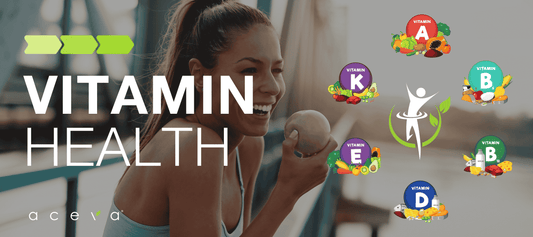
As spring allergies start ramping up, you may not need to look much further than your pantry to get relief with a natural compound called Quercetin.
What is Quercetin?
Before we dive into how Quercetin can help you fight off allergy flare ups and infections, let’s look at what it is and how it is found naturally in our everyday environments. Quercetin is a plant pigment or flavonoid generally found in a variety of different foods and plants. It’s also used widely in traditional Chinese and botanical medicine.
Flavonoids, in general, are phytonutrients found in plants and other compounds that give fruits and vegetables their vibrant colors. As polyphenols, flavonoids like Quercetin also have properties that support our health in various ways.
Where is Quercetin found naturally?
To find a natural source of Quercetin, all you need to do is turn to the produce aisle. Quercetin is in many fruits, vegetables, seeds, nuts, and medicinal plants. Here is a list of some common foods containing Quercetin:
- Fruits: apples, kiwis, citrus fruits, berries, grapes, tomatoes
- Vegetables: asparagus, green pepper, lettuce, potatoes, celery, eggplant, onions, shallots, cruciferous vegetables (like broccoli, cabbage, kale, etc.)
- Legumes: beans
- Medicinal plants: St. John’s wort, Elderflower, and Ginkgo biloba
- Other sources: Nuts, seeds, beans, and honey
Onions are particularly rich in Quercetin. In fact, one of the highest concentrations of Quercetin is found in the onion’s outermost skin, closest to the root. This is why many medicinal supplements are made from onion skin powder. There is also evidence that organic fruits and vegetables may contain higher concentrations of Quercetin. This 2016 study showed that organic tomatoes contained as much as 79% greater amounts of Quercetin versus non-organic tomatoes.
How does Quercetin work?
As an antioxidant, Quercetin binds to free radicals and neutralizes them to reduce oxidative stress and inflammation in the body. In this way, Quercetin has antioxidant and anti-inflammatory effects which could potentially help reduce inflammation, kill cancer cells, control blood sugar, help fight infections, reduce sinus inflammation, help prevent heart disease and much more.
How does Quercetin help with allergies?
Quercetin has shown to play a significant role in managing allergies. Clinical studies show that Quercetin prevents immune cells from releasing histamines, the chemicals that cause allergic reactions.
Because of this, Quercetin is the key ingredient in one of our top allergy-relief products, Aller-Aid. This 100% natural supplement can help you find relief from allergy symptoms without the side effects your get from over-the-counter medicines such as drowsiness, dry mouth and more.
Can Quercetin help with respiratory inflammation?
Quercetin has promising antiviral and anti-inflammatory properties, which researchers are finding may also be useful in helping treat early and late pulmonary phases of COVID-19 symptoms. Research into this topic is still being explored, but a few studies investigating Quercetin have been reported. The studies find that the compound may have the ability to:
- Act as a long-lasting anti-inflammatory substance that possesses strong anti-inflammatory capacities.
- Exert antiviral effects on the novel coronavirus by inhibiting a protease’s function called 3CLpro in SARS-CoV-2, the virus that causes COVID-19.
- Block entry of the virus into host cells, which could play a key role in both the prevention and treatment of COVID-19.
How do I get more Quercetin?
In addition to eating more onions from your pantry, taking a Quercetin isn't a bad idea - especially during allergy season. The anti-inflammatory and immune-boosting properties of the flavonoid alone are two great reasons. Quercetin also offers some other health benefits. Research indicates that Quercetin may help:
- Improve mental performance
- Reduce the risk of cancer
- Reduce inflammation
- Reduce viruses’ ability to replicate (antiviral)
- Reduce lipid peroxidation and blood clotting
- Reduce capillary permeability
- Improve mental and physical performance
- Reduce one’s risk for infections
Furthermore, clinical studies show that Quercetin may potentially reduce blood pressure, reduce the risk for cardiovascular disease and help combat diabetes.
How much Quercetin should you consume?
Access to and global consumption of foods rich in Quercetin varies widely throughout the world. In the US, the average adult consumes about 10 mg of Quercetin daily from food sources. But we also know that on average, across the globe, of the flavonoids ingested from food consumption, 75% is Quercetin. Fruits, vegetables, and tea are typically the biggest players when it comes to people consuming Quercetin naturally.
As for how much Quercetin you should aim to consume daily, the optimal amount of Quercetin has not been determined and various studies show different impacts. For example, one scientific study identified 162 mg/day as a “supra-nutritional” dose. While other medical practitioners have suggested that short-term “medicinal” doses could be as much as 500 mg twice daily.
Bottom Line on Quercetin for Allergy Season
If you're looking for a natural way to fight the nagging symptoms of allergies this season, grabbing a bottle of Aller-Aid from Aceva will give you the added boost of Quercetin you need to feel the difference.





1 comment
Excellent article rich with information.